Top 10 Ghana Culture, Customs, and Etiquette
In every country, there are acceptable and unacceptable practices that all citizens and visitors must be aware of. Ghana is a country of rich culture and ... read more...tradition, and as the saying goes in Ghana: "the best tradition goes on". So in this article, Toplist brings you some basic Ghana culture, customs, and etiquette that are practiced in Ghana which will be helpful to locals, travelers, or expatriates.
-
Ghana is a small African country with formal mannerisms that are unfamiliar to many. Ghanan cuisine consists of a lot of hot and spicy foods, with specialties including a dish made of root vegetables served with a spicy sauce, known as ‘ampesi’ and ‘fufu’ which is a dish containing fresh spiced vegetables and soft, fluffy dough. Ghana is also a largely Muslim country, so again for African dining etiquette here, the same rules apply as they do in other Muslim countries such as Egypt. You should wait for someone to tell you where you have to sit and before taking a seat, you should always greet the elders of the family.
You should always remove your shoes before entering a Ghanan home, your hands should be washed before and after eating, and you should hold cutlery in your right hand. A wash basin is got out before, you can use that to wash your hands. The meal should always begin after the eldest male of the family starts eating. The food is usually served out of a big bowl that is common to all the people and food is eaten with hands. The left hand should not be used for eating.
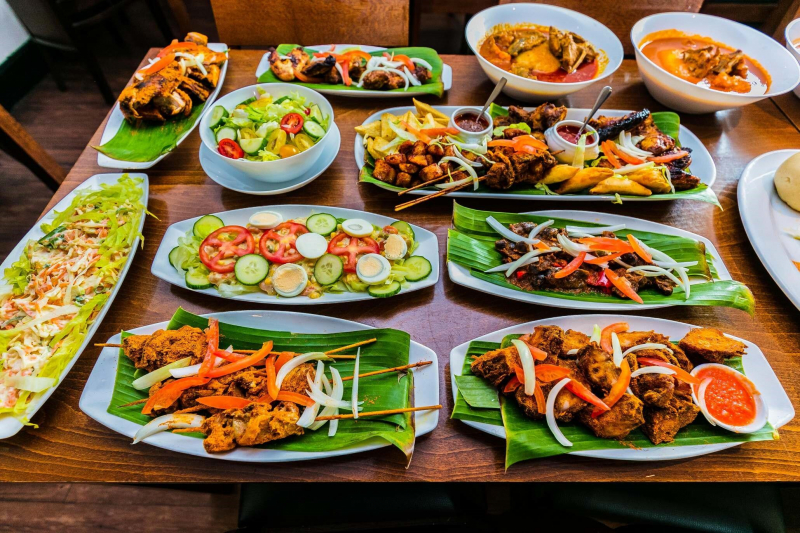
afar.com 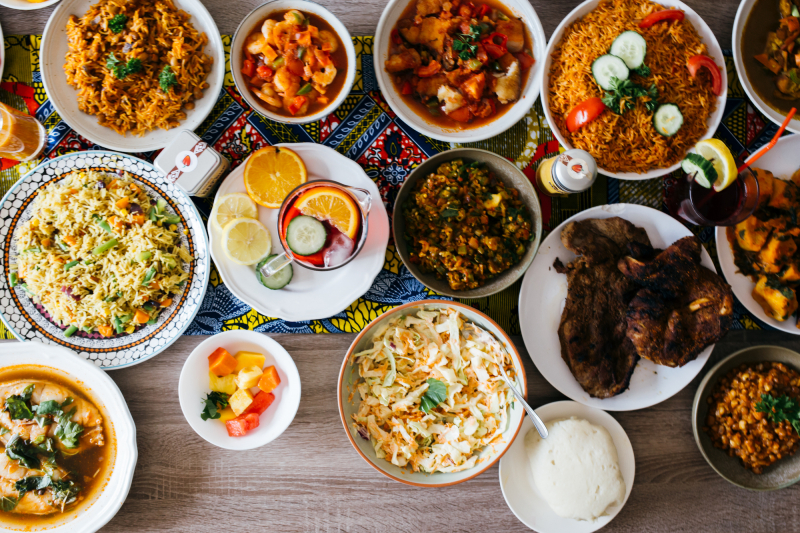
epicureandculture.com -
Another fundamental etiquette that you know applies to all cultures is to express gratitude when a kind gesture or a good deed is extended to you. However, the Ghanaian way of saying thank you is more elaborate than that of many European and American communities.
It is greatly appreciated in Ghana to reach out to the person who has done you a good deed the next day to express your gratitude. This is true even if you thanked the person on the day the good deed was done to you. This demonstrates that you truly appreciate the person's gift or gesture. If you do not do so, it will be interpreted that you did not appreciate the gift or gesture.
In some communities, particularly in rural areas, the entire deceased family must go around and thank everyone who came to their loved one's funeral. This is mostly done in small towns where everyone knows everyone else. However, in cities, this is rarely done. A simple phone call from any member of the family is sufficient. If the person is a close neighbor, it is best to go to his house the next day and thank him.

english-learning.net 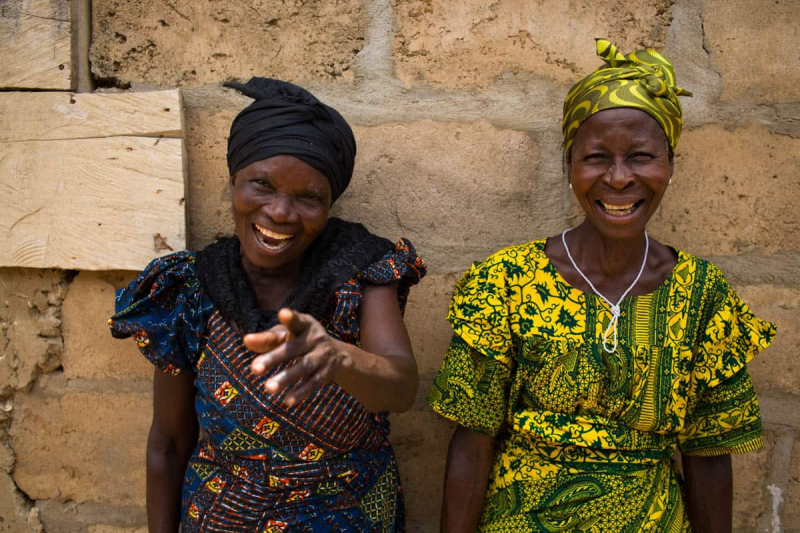
blog.compassion.com -
Respect is a very important aspect of Ghana culture. The idea of respect for one’s elders is limitless. Not only must a child respect those that are older than him or her, but also the elders respect those who existed before them and now exist in the afterlife. There are many small customs that represent ways in which one can honor one’s elders. One is that a young person may not sit in a chair while a more senior person is present. Also, a child is not permitted to call parents, grandparents, or any others holding those positions by their names. When children do converse with their elders, they are much more polite in their use of language.
Age and social status hierarchies influence many factors within the society, such as the arrangement of the houses and villages and the seating position at ceremonies. The oldest member of the family almost always leads the group, unless it has been proven that this elder is unfit in the customary fashions. The purpose of education seems to revolve around raising and cultivating brave, educated and respectful individuals.
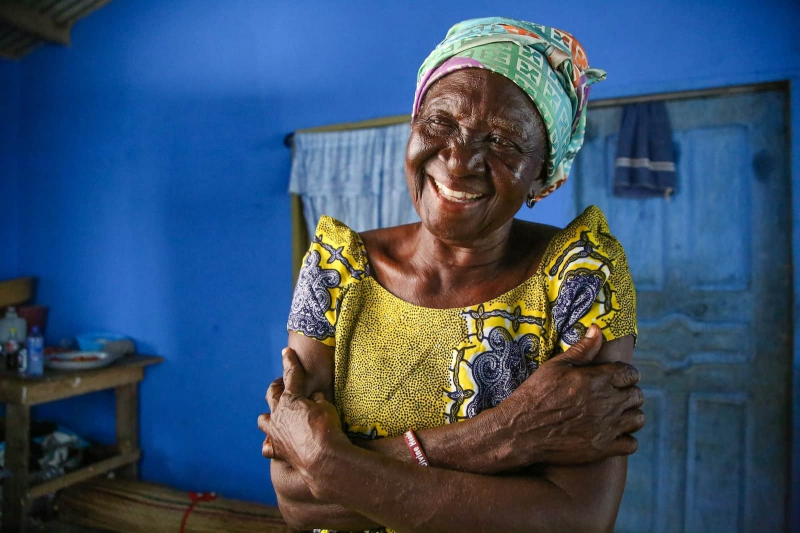
compassion.com 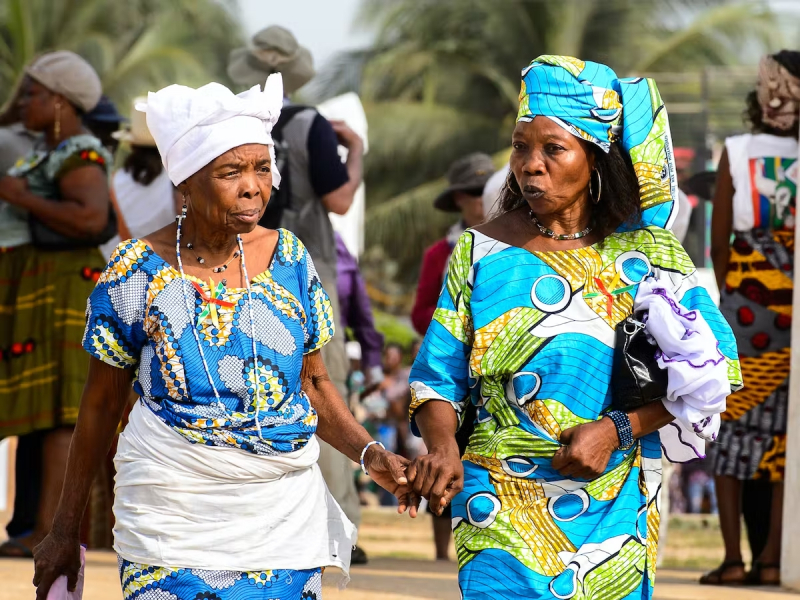
theconversation.com -
In Ghana, each ethnic group, with their distinct culture across the nation, represents themselves uniquely in the way they dress. The roots of Ghanaian fashion go back to the pre-colonial era. Traditional wooden looms of cotton and raffia and wool are existing since those times. And, they are still considered an important aspect of their fashion. Kente, Kete, and Gonja cloth are used in most of the traditional ethnic clothes of Ghana.
A unisex outfit or fabric is Kente. However, how men and women wear it varies. Men wear it across one shoulder and around the body, similar to an ancient Greek toga. Women typically wear a two-piece kente, of which one serves as a wraparound skirt and the other as a shawl. To finish the look, a simple blouse is worn. It is also a typical Ghanaian ethnic wedding attire. Kete is similar to Kente. It is also famous, for its bright colors and symmetrical pattern. Although the origins are not clear, both textiles are of great value to the cultural heritage of Ghana.
Unlike Kente and Kete, Gonja is not check-patterns or super colorful. As it is used more for men's outfits, the fabric is woven with a striped pattern. This is used to make a kurta or long kaftan looking shirts for men called Smock. Usually very loose and breathable in the hot temperatures during summer. Also, cotton is used for making this type of fabric.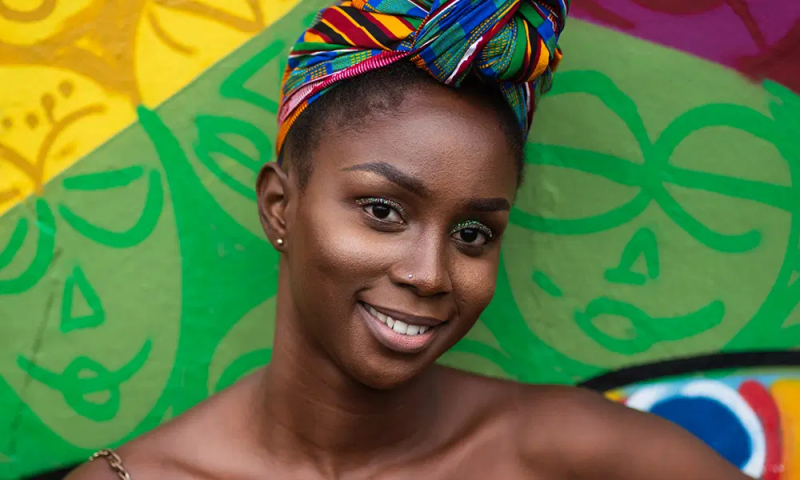
whattowearonvacation.com 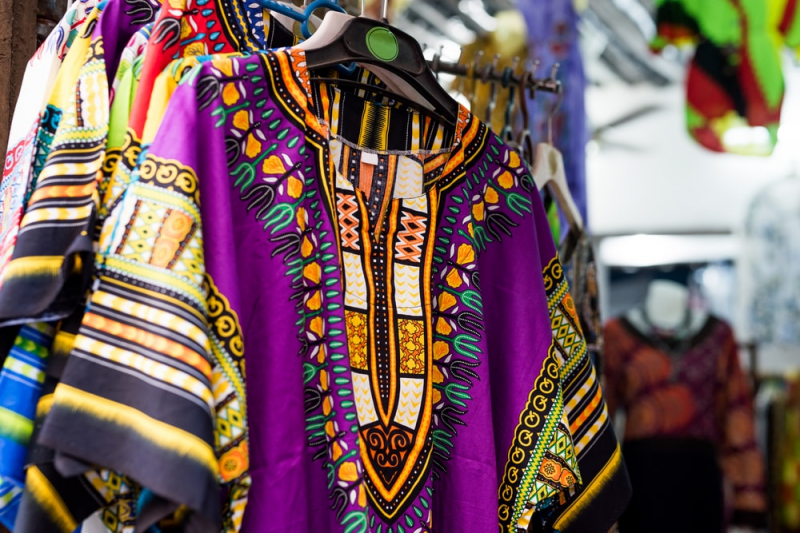
theculturetrip.com -
Ghanaians have an indirect communication style and rarely express their true feelings, especially when speaking to someone in a position of power. Greetings are important in Ghanaian culture. When passing a group of people, especially the elderly, it is customary to greet them. Failure to greet is regarded as an insult and is not easily overlooked. When approaching a group of people, it is customary to greet them and, if possible, shake their hands. Time is always set aside for greeting, and it is not regarded as an interruption or a waste of time.
When addressing someone, it is considered polite to use formal titles. Anyone older than oneself must be addressed as "brother" or "sister" at the very least. Respectful titles such as "father, mother, grandfather, sir, or madam" should be used when addressing the elderly.
Showing affection in public between men and women is not acceptable, even for husbands and wives. Men may hold hands (no sexual implications) or even hug, but male/female relationships are strictly controlled. Hugging is not commonly done except by very dear friends, especially between men and women. Loud, boisterous behavior is also considered poor taste, especially for women. In public, it is best to display a quiet, careful, and friendly attitude.
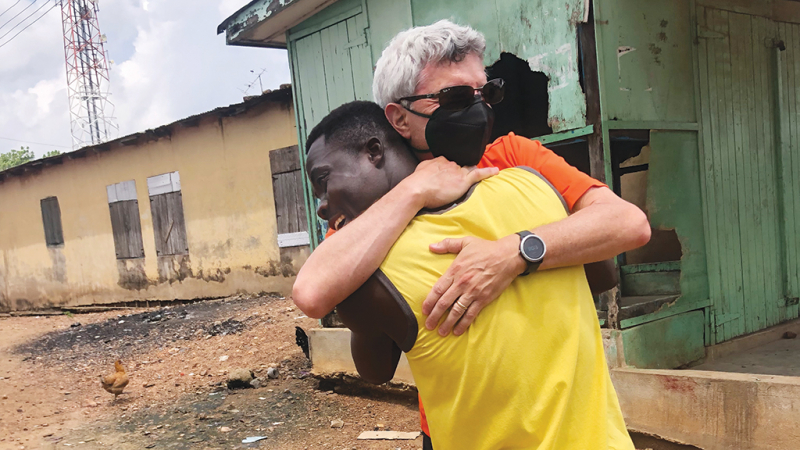
twitter.com 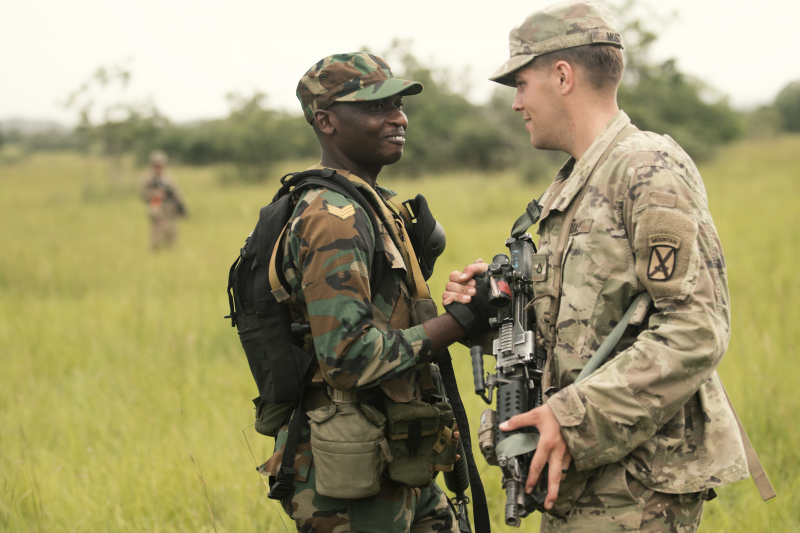
defense.com -
Gifts need not be expensive; the thought is more important than the value. If invited to dinner at a Ghanaian's home, you are not expected to bring a gift. However, a gift for the children is always a nice touch as it shows a concern for the family. Gifts should be given using the right hand only or both hands. Never use the left hand. Gifts should be wrapped, although there are no cultural taboos concerning paper colour. The recipient may or may not open the gift immediately, there is no strict rule about this, either way.
Gifts are central to business relationships in Ghana and many businesses show appreciation at the end of the year by gifting their customers, vendors, clients, and other business associates gift baskets, which have an assortment of gifts, sometimes including the company’s own products. Multinational corporations usually have stricter restrictions about gift giving than local companies. This communal spirit also carried on in the worst of times, so it is also common to give a donation for a funeral when a colleague or colleague’s family member passes away. Giving gifts may be one of the most important Ghana culture, customs, and etiquette.

usvisagroup.com 
practicalsmart.com -
In Ghana, marriage is constructed according to the custom of the ethnic group in which the couple lives. Usually, this includes a religious ceremony and a civic registration ceremony commonly known as a wedding. Generally, marriage in Ghana is recognized as a union between a man and a woman with the knowledge of both families of the bride and the groom. In the Volta region of Ghana area, marriage is a union between a man and a woman who agree to live together as husband and wife and have gone through all procedures recognized in society for such a purpose.
In Ghana, the purpose of marriage is to provide companionship for the couple, the means to offer support for each other, and a legitimate avenue for sexual satisfaction and reproduction. Marriage is usually a group affair that involves not only the immediate relatives of the couple but more distant kin folk.
However, in selecting and accepting a potential spouse, certain important conditions have to be met. Members of each family are screened for incurable or contagious diseases, criminal backgrounds, violent behavior, respectfulness, employment status or standard of living, and religious background.
Generally, many Ghanaians prefer a spouse who is hardworking and respectful, peaceful (not violent or do not advocate violence), and of the same or compatible religious background. Christians and Mulisms do not generally intermary. However, conversions from one religion to another is preferable prior to marriage.
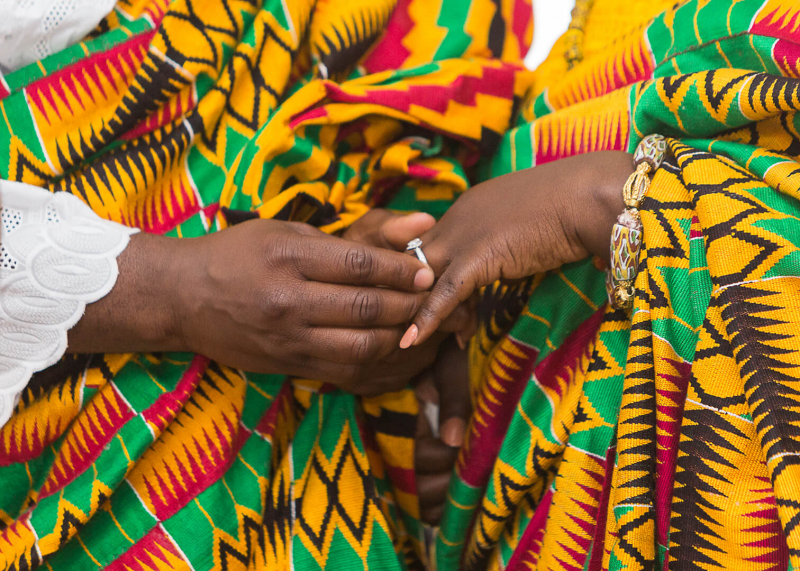
thewvg.com 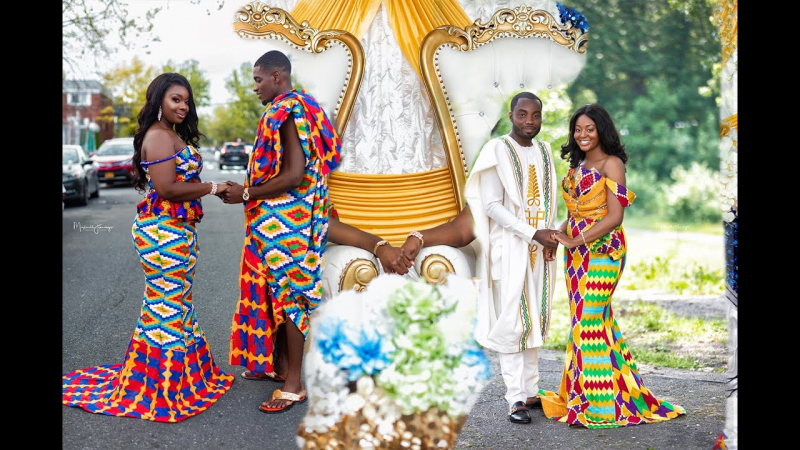
youtube.com -
Ghana's centuries-old traditions, combined with the diversity of its distinct ethnic groups, have resulted in a rich culture that is the magnificent legacy of modern Ghana. The traditions of their forefathers are still an important part of Ghanaians' daily lives. Customary leaders have historically wielded power over tribal and family matters, and customary lands are an important part of the heritage.
Special rites and rituals mark significant life events. Family ceremonies mark child naming, puberty initiations, marriage, and death, while seasonal festivals bring entire communities or clans together in spectacular fashion. A belief in the Supreme Being, life after death, and the nearness of deceased ancestors is a common feature. Festivals also commemorate past events and usher in a new season with optimism and confidence.
Traditional fetish shrines, which are sometimes hidden but more often displayed, are important places of worship and traditional healing, as well as an important part of traditional life. The Posuban shrines, which are unique to the Fante communities of Southern Ghana, are especially significant. Religious centers for Fante warrior organizations are fanciful buildings lavishly decorated with folk art.
Many festivals include thrilling durbars of chiefs, when tribal leaders and Queen Mothers process in decorated palanquins, shaded by traditional umbrellas, and supported by drummers and warrior discharging ancient muskets. In Ashanti, the Adae and Akwasidae festivals vividly bring the splendour of the Asante kingdom to life, when the Ashantehene King, adorned in all his gold regalia, comes out to receive the homage of his people. The Asantehenes dancers, praise-singers and horn-blowers surround the King and his procession, in a never-to-be-forgotten spectacle. The dates of many festivals are determined by traditional calendars, often decided close to the event.
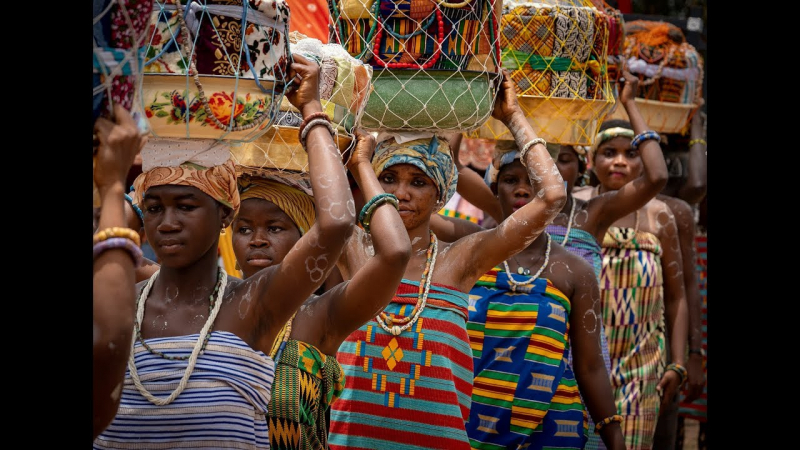
yen.com.gh 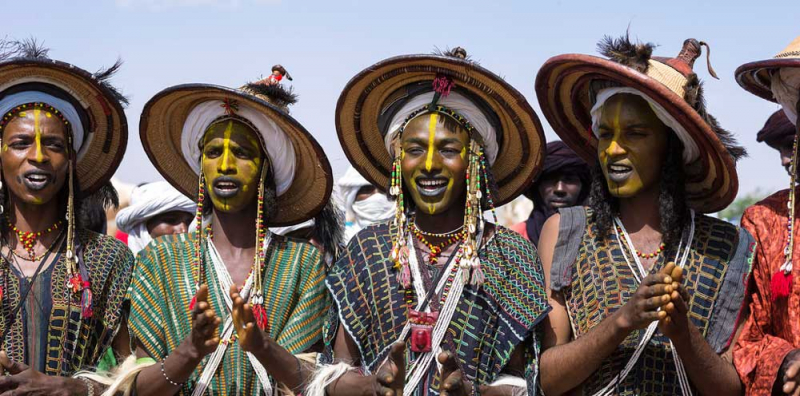
creativetravelguide.com -
There are many religions co-existing peacefully in Ghana and religious tolerance in Ghana is very high. The three most prominent religions are Christianity, Islam, and Traditional. While you are invited to attend any type of service, proper attire and respect are required and no proselytizing is permitted.
Ghana has the highest percentage of Christians in West Africa. About 60% of the citizens of Ghana are Christian, with the majority living in the southern part of the country. There are beautiful Catholic churches in larger cities in Ghana, including Navrongo in the Upper East region. There are many other impressive structures as well, such as the Our Lady of Lourdes Catholic grotto at Kpando, which has an 8-metre statue of Mary, a grotto and life-size statues of the 14 Stations of the Cross.
About 20% of the citizens of Ghana are Muslim. The northern part of the country is heavily Muslim, but you will see mosques and hear calls to prayer throughout Ghana, including throughout Accra. There are three primary branches of Islam within Ghana: Ahlussuna, Tijanis, and Ahmadis. There are many beautiful mosques in Ghana, some being nearly 1000 years old. Those of practicing faith would be welcome to participate in prayers.
While mostly thought of as being associated with Benin and Togo, about 20% of the citizens of Ghana practice traditional religions, usually in the southeast of Ghana. Despite Christianity and Islam religions being majorly followed within Ghana, traditional beliefs still play a strong role in the Ghana because of their intimate relation to family and local mores. Traditional religions were actively suppressed during colonial times, so there is often a mingling of traditional and Christian beliefs.
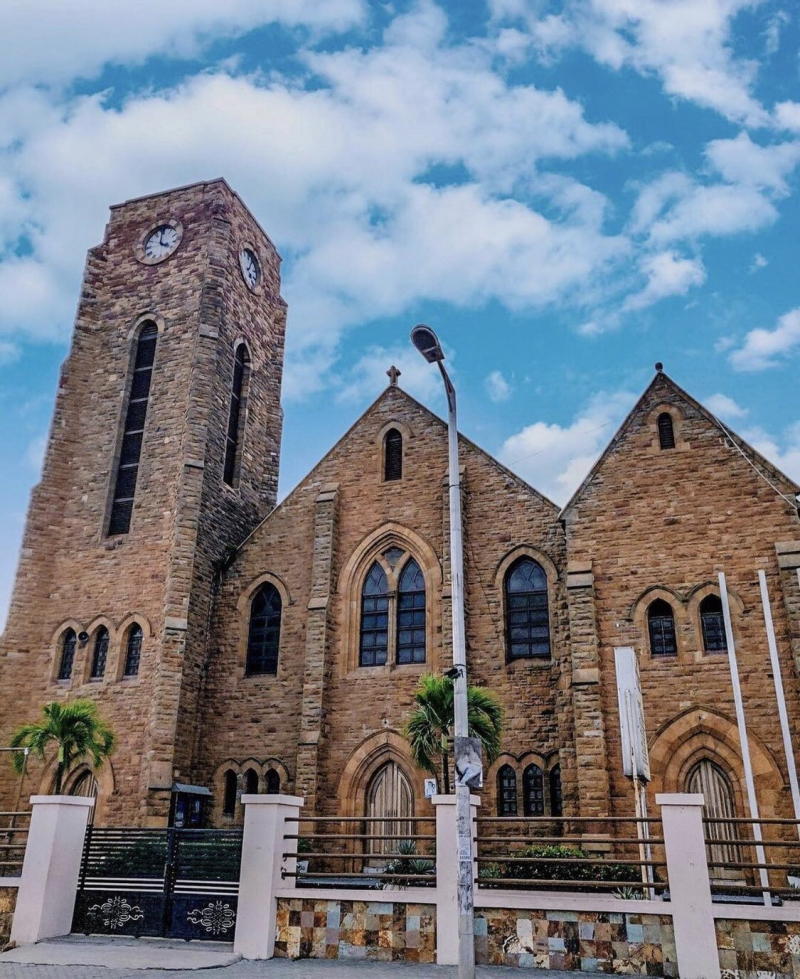
britannica.com 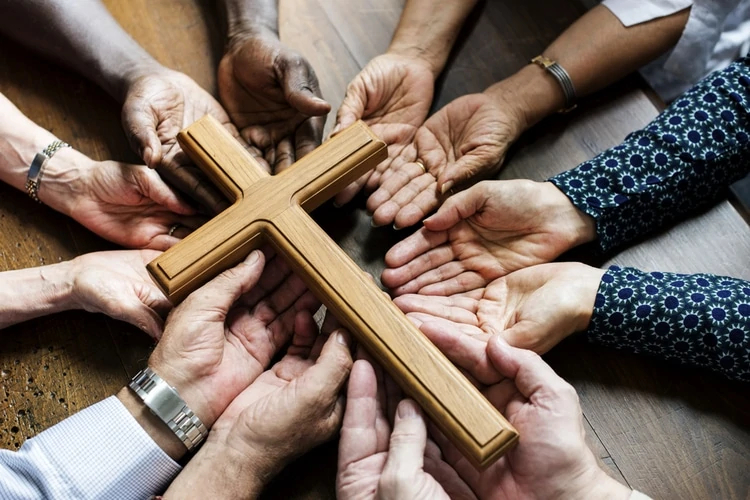
swedishnomad.com -
In Ghana, host families are typically large, with multiple generations living in the same house or compound. Ghanaians are warm, friendly, and hospitable by nature. Although Ghanaians are generally relaxed, families can be quite strict and protective of their children. Most Ghanaian families do not allow their children to spend the night at the homes of friends. Household chores are normally gender specific in most Ghanaian families, except in homes where all the children are of one gender; thus, girls are expected to help with cooking and sweeping outside the house, while boys sweep the living room and wash the family car (if there is any).
Outdoor dining is popular, with families cooking meals and socializing in the courtyard. Spending a lot of time alone in one's bedroom is considered impolite in most families. Family members typically spend time together by watching TV in the evenings or attending church or weddings on weekends. In Ghanaian homes, drinking alcohol and smoking are strictly prohibited.
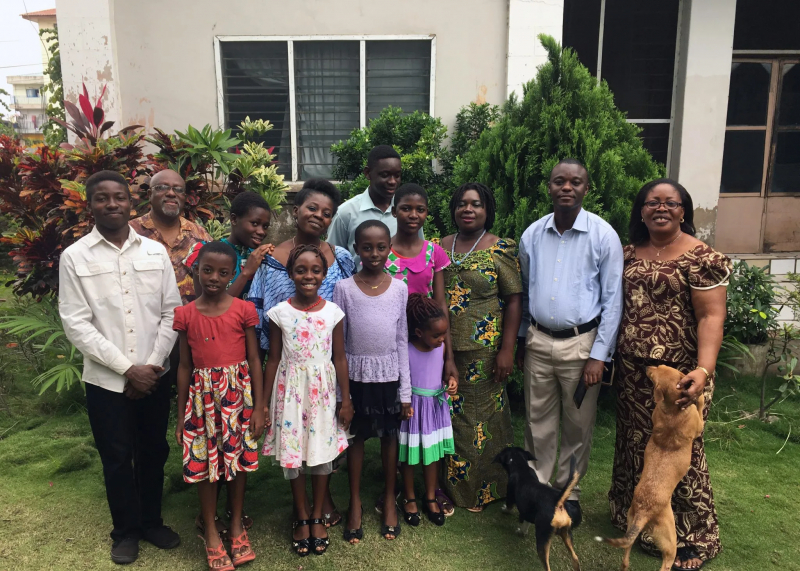
afsusa.com 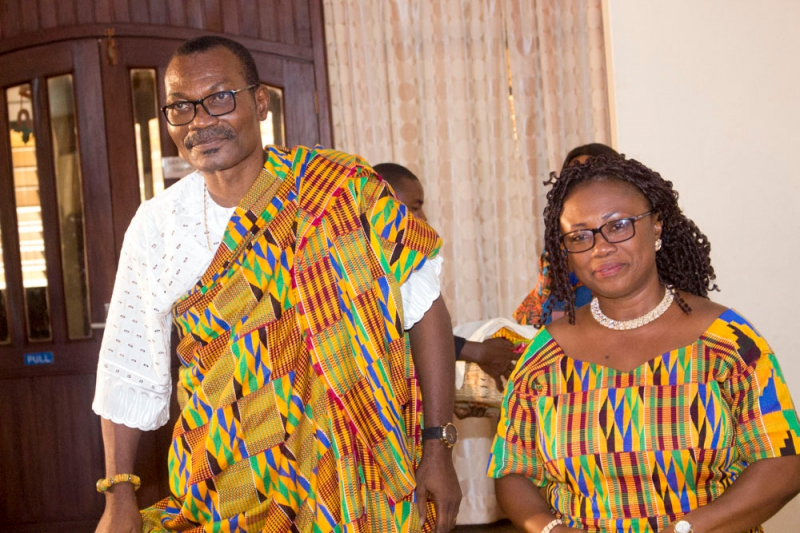
gcmghana.org































